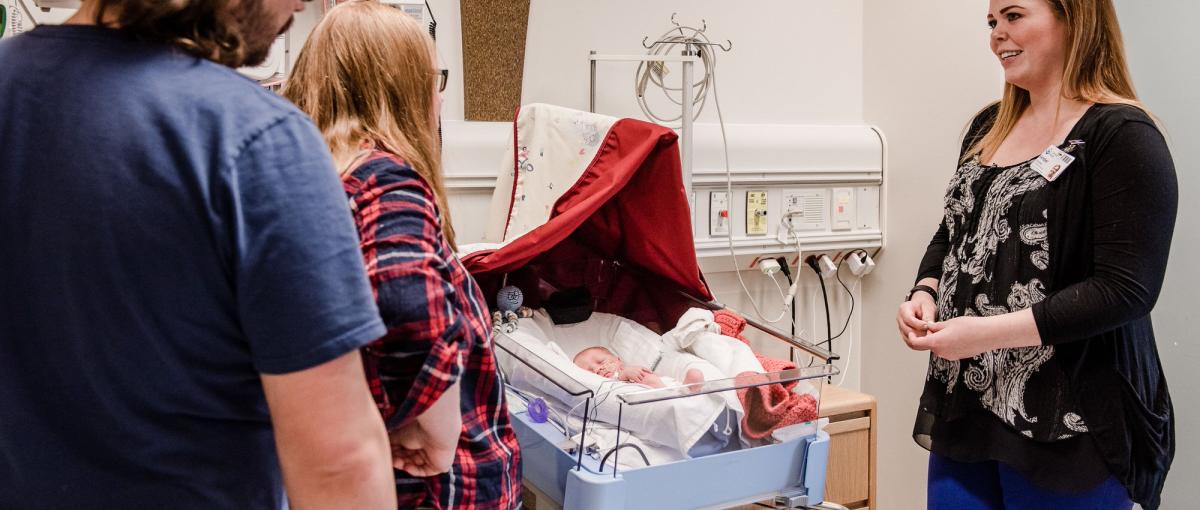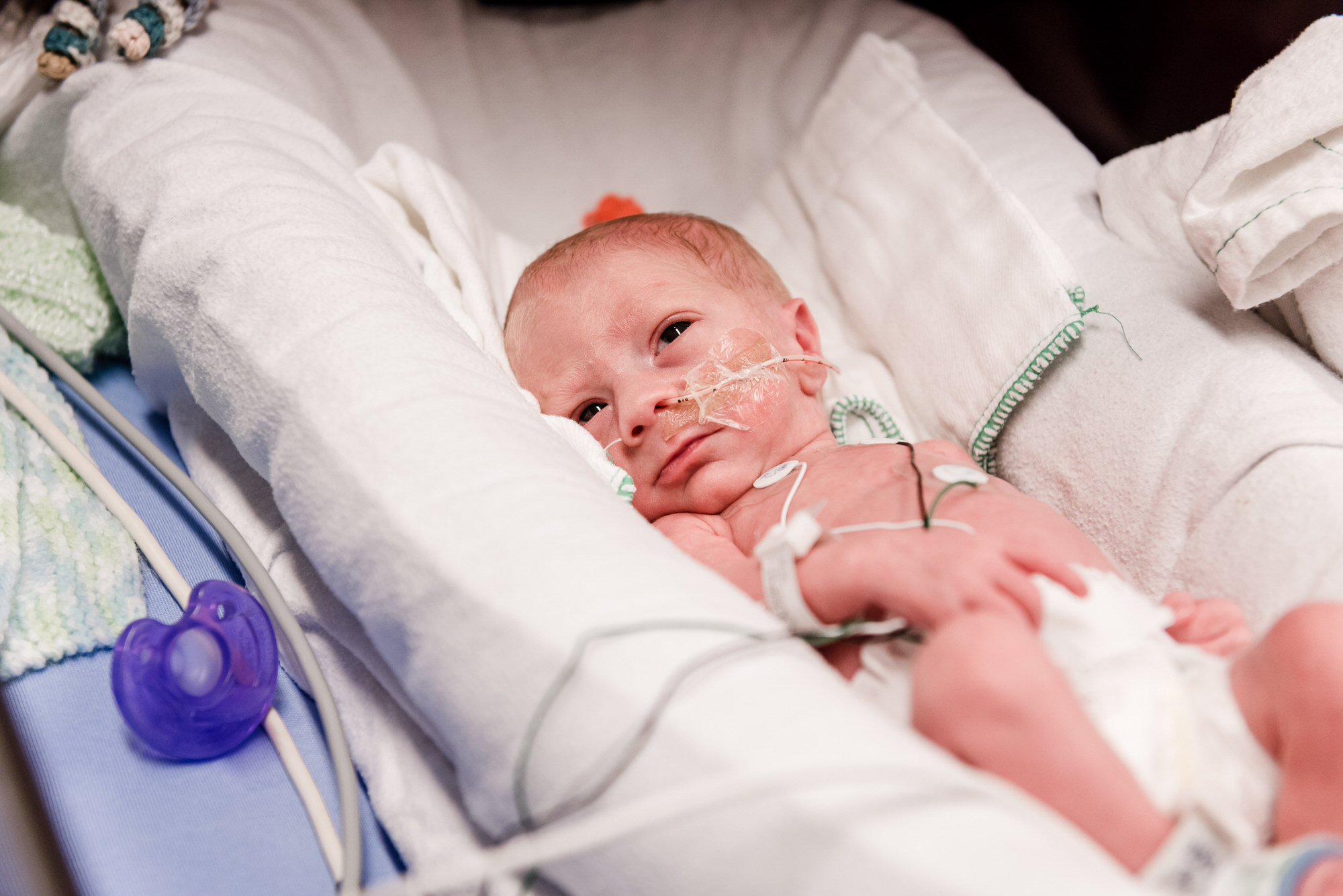Peer support for NICU parents
Parents who've had a baby in NICU help families in Grey Nuns Community Hospital program

April 30, 2018
By Amanda Zirk, Freelancer writer
Having a preterm or sick newborn who needs to be in a neonatal intensive care unit (NICU) can be an overwhelming experience for parents.
“Being in the NICU is scary,” says Derek Hannah, whose son Douglas is currently in the NICU. “The past couple of weeks have been stressful. We come visit Douglas first thing in the morning and leave the hospital at midnight. It’s been a whirlwind.”
Family, friends and hospital staff support parents the best they know how, but may struggle to understand what it is like to have a newborn in the unit, which provides more intensive care to infants.
To bridge the gap, the Grey Nuns Community Hospital developed the NICU Family Mentors volunteer program in February 2017. Family mentor volunteers have first-hand experience of having a baby in the NICU and with navigating the healthcare system. They are now helping to support parents who have babies in the NICU, bringing them comfort and hope.
“Support from someone who was a NICU parent helps to normalize the emotional turmoil parents feel and decreases their sense of isolation,” says Karen Foss, Nurse Practitioner at the Grey Nuns, who is responsible for the program.
Douglas’s mom, Michele Hedberg, and Amber Petch, family mentor volunteer, had very similar experiences. They were not able to see their babies for four days due to their own health complications.
When Douglas was born about nine weeks early, he weighed just 3.2 pounds and had difficulty breathing on his own. He will stay in the NICU until he reaches specific milestones, which include weighing more than four pounds, having no incidents of breathing issues and eating without a feeding tube.
“I had to have an emergency C-section because of severe pre-eclampsia and I was at risk for liver failure,” explains Michele, who delivered her baby at 31 weeks. “I had about 30 seconds with Douglas before they wheeled him away.”
Amber delivered her daughter Daisy at 35 weeks, suffered an amniotic fluid embolism and went into cardiac arrest. Because Daisy was born preterm, her lungs were not fully developed and she required a two-week stay in hospital. Although mom and baby suffered a great deal in the beginning, they are both healthy today.
“I want to show parents a positive outcome from a difficult situation," says Amber.
"Volunteering has helped me create better memories at the hospital. It went from being a place I couldn't even drive by to a place where I help families. I get asked a lot by friends and family how I could possibly go back to a place where I had so much struggle, but volunteering has changed that outlook for me.”
Amber and three other family mentor volunteers dedicate a few hours every week to visit two or three families. They discuss their pregnancies, the challenges of having a sick or preterm baby and milestones the NICU parents can look forward to. To date, 45 families have been helped. The Grey Nuns NICU cares for about 1,500 babies each year.

“You don’t know the extent of it and you don’t know how many people are in the NICU until you’re in one. We thought there would only be two or three other babies,” says Derek.
He and Michele are grateful for Amber and other NICU veteran parents who have shared their stories.
“Right now we’re just thinking, ‘When is this going to end?’,” says Michele as she pauses to compose herself. “But the family mentors have been great. I wasn’t even expecting it. It’s so nice that they come back and help.”
Karen believes the program will expand.
“Family mentors are an important part of staff education, and we plan to facilitate more growth in this area,” she says. “We are also trying to create an environment in the neonatal program that supports family mentors’ own ideas for family support, such as weekly coffee gatherings.”
The Stollery Children’s Hospital and the Canadian Premature Babies Foundation (CPBF) were pivotal in helping launch the Family Mentors initiative at the Grey Nuns NICU, through shared experience and resources as well as some monetary support respectively. GNCH Volunteer Services has also been a key partner in this initiative.